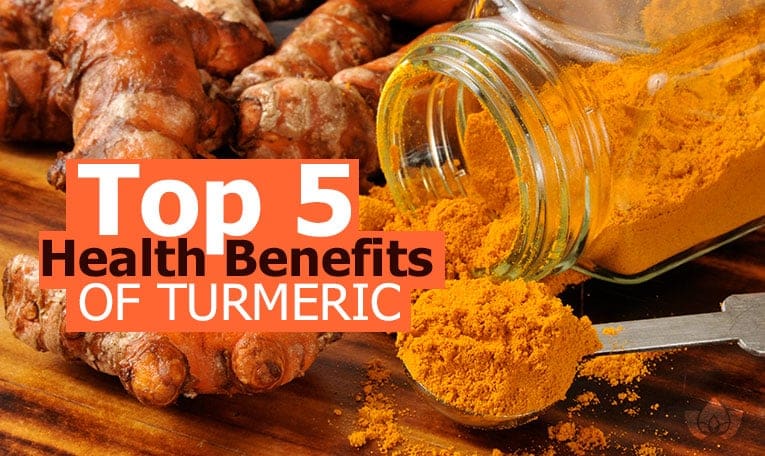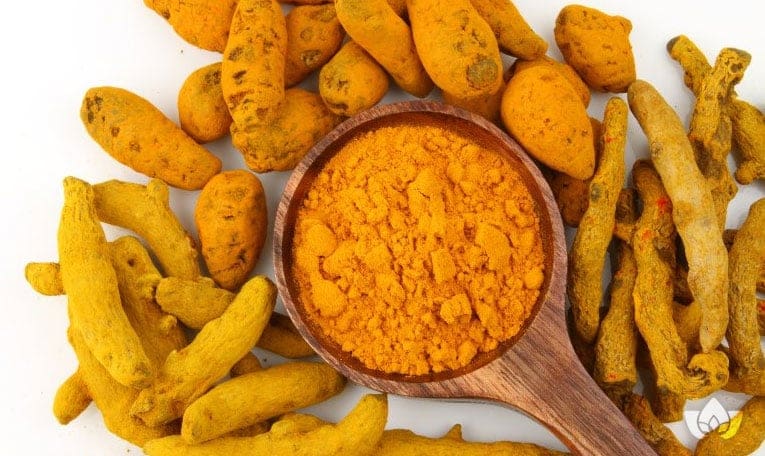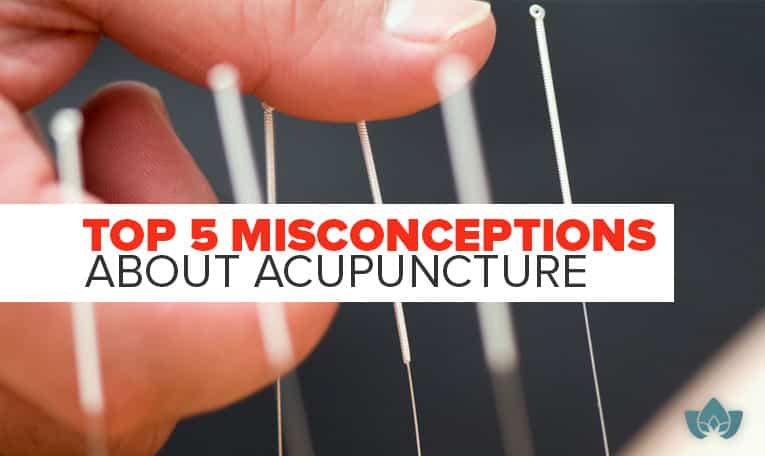Showing all posts tagged #mindfulclinic:
What Is An Autoimmune Disorder?
Posted on May 28th, 2018
Feeling Tired? It May Be Chronic Fatigue
Posted on May 4th, 2018
Naturopathic Treatments for Asthma
Posted on May 2nd, 2018
Naturopathic Treatments For Urinary Incontinence In Women Part 2
Posted on April 30th, 2018
Naturopathic Treatments For Your Endocrine System
Posted on April 4th, 2018
The Worst Weight Loss Advice
Posted on March 16th, 2018
Common Signs Of Stress (And What To Do About Them)
Posted on March 14th, 2018

Imagine you're a cop in an action movies.
You're right outside the apartment of the most dangerous drug lord in town and his goons, waiting for back up.
Any moment someone will come out and see you.
Those guys, they hate cops. They'll shoot you dead on sight – if you're lucky.
Unless you get them first.
Your muscles tense up, readying you to run like a fiend at the slightest noise.
Your blood pulses in your veins, your heart is a drum in your ears.
You're panting like an animal hungry for the chase.
Your body dampens down everything else, attunes the entirety of its resources to a single purpose: getting you out of this alive.
Now, imagine feeling like this all the time.
The fight-or-flight response works great for the situation above.
Not so well for your midterms.
In my practice as a naturopathic doctor for stress management, I have helped many patients reduce stress and improve mental and physical wellbeing.
Today I'll share with you some of what I've learned on stress and how to mitigate its harmful effects.
What is stress, and why it can be bad for us?
The biological purpose of stress is to help an organism survive by forcing it to adapt quickly to any physical or environmental pressure.
Acute stress involves an urgent, quick danger that activates the fight-or-flight response of our sympathetic nervous system.
This system redirects our energy to the bodily systems most useful for fighting or escaping.
But what happens when that response gets overextended?
Chronic stress involves continuous activation of the fight-or-flight response.
That means that physical changes meant to last a short time become overextended.
Things like an unhappy marriage, poverty, childhood trauma, major life events, or a high-stress job can cause chronic stress.
But even smaller, daily stressors can lead to chronic stress.
What does the fight-or-flight stress response consist of?
Hormones such as adrenaline, noradrenaline and cortisol are released, causing the following:
These changes will raise your risk of stroke or heart attack.
Other hormones released, like norepinephrine, can affect the brain by acting like neurotransmitters.
This can cause mood swings, poor concentration, anxiety and depression.
These are some of the most common symptoms people with chronic stress complain about:
What are the best ways to reduce stress and its negative effects?
Prioritizing
If your stress is the result of work overload, it's important to become more selective about your tasks.
Rate your tasks by importance and by benefits.
Which tasks take long, yet produce little utility?
Try to forfeit some of those tasks.
Not everything is important.
Which time-consuming tasks can be delegated to a person or an affordable service that will do them for you?
For example, the app Fiver allows you to hire people for miscellaneous tasks for just a few dollars.
Which tasks take long because of inadequate technology?
Do you spend a lot of time waiting for your old computer to process every task?
Consider replacing it.
Consider buying software that will automate some of your tasks; your time is a resource, and this change may pay off in the long term.

Cognitive restructuring
cognitive restructuring is a psychotherapeutic technique that involves learning to identify and refute maladaptive or irrational negative thoughts, and replace them with more realistic ones.
It can help you fight overly-pessimistic expectations that lead to stress.
Take a look at a task or event that’s causing you anxiety, and think about the following questions:
At the end of the exercise, prepare a coping statement that will include what you've learned.
Keep it with you as a note, and reread it whenever you become anxious about that task or event.
Progressive muscle relaxation
Progressive muscle relaxation (PMR) is a great method to relax the tension in your body.
It can help with tension-related head and back pain.
This is how PMR works:
Exercise
Exercise can help reduce stress and the insomnia associated with it.
It produces endorphins which act as natural pain killers, and lifts mood.
It also serves as distraction from worries, especially if you exercise mindfully. In addition, it helps battle the effects of stress on sleep.
You can exercise with a friend to reap the benefits of socializing on mood as well.
Contact The Mindful Healing Clinic
Do you suspect the symptoms you're experiencing might be stress-related?
Contact me, Dr. Maria Cavallazzi, to book your FREE optimal health consultation here at the Mindful Healing Clinic in Mississauga.
I can help you figure out if you're suffering from chronic stress.
Being hard-working doesn't have to come at the expense of your health.
With naturopathy, I can teach you different interventions and create an individualized plan that'll help protect you from the harmful effects stress.
Contact me today at the Mindful Healing Clinic for your FREE optimal health consultation.
Until next time,
Dr. Maria Cavallazzi, N.D
Mindful Healing Integrative Naturopathy
251 Queen St S Unit 4,
Mississauga, ON L5M 1L7
- https://goo.gl/maps/KYspifT7J232
Dr. Maria Cavallazzi is a medical doctor from Colombia where she practiced as a family physician for 8 years until she moved to Canada 16 years ago.
To see more ideas on health, wellness, and alternative medicine, please visit us here: naturopathic doctor
Top 5 Health Benefits Of Turmeric
Posted on March 8th, 2018

Whether you want to fight inflammation in your body, or just make your food yellow, turmeric – the spice used in curry – is your friend.
Curcumin, the main active ingredient in turmeric, significantly reduces inflammation and oxidation.
Chronic inflammation is a major culprit in Western disease. It contributes to diabetes, cancer, arthritis, metabolic syndrome, heart disease, Alzheimer's disease, depression, obesity, and inflammatory bowel diseases.
As a naturopathic doctor in Mississauga, I’ve worked with many different patients over the years and often include turmeric as part of my naturopathic and nutritional coaching programs.
Anti-inflammatory drugs taken on long term basis have severe side effects on gastrointestinal and cardiovascular health.
But curcumin has been shown in some cases to be as effective as pharmaceutical anti-inflammatory drugs, while being free of side effects.
As a powerful antioxidant, curcumin can also reduce damage from free radicals, and protect against various negative effects associated with aging.
What’s the catch?
This amazing curcumin compound?
It’s only 3% of the content of turmeric.
To get an effective dosage out of natural turmeric powder you’d have to take up curry eating as a full-time job.
That’s why studies typically use extracts with high concentration curcumin.
The trouble is that most of this curcumin will bid you farewell on your next trip to the restroom.
Curcumin has poor bioavailability and doesn’t absorb well into the bloodstream.
There has been some disillusionment among scientists as impressive lab results and animal studies did not always translate well into human trials.
Still, is there any way to harness the mighty powers of curcumin?
Piperine, found in black pepper, improves curcumin absorption by 2000%. Combining curcumin with lipids will also increase its absorption.
Unfortunately, a lot of the current human studies on curcumin made no effort to improve its bioavailability.
Hopefully with the addition of piperine or lipids to curcumin, future studies might yield better results.
Nonetheless, many human trials with curcumin have already been successful.
Read on to find out how curcumin can help your health.
What Is Turmeric Good For?
Human romance with the turmeric plant began in India, nearly 4000 years ago, where it was used for culinary and religious purposes.
We have records of its medicinal use starting from 250 bc, when it was recommended by "Ayurveda" – the Indian system of holistic medicine – for use in ointments against poisoned food.
Interestingly, up to 50% of approved drugs in the past 30 years has come directly or indirectly from natural products.
In recent years modern medicine became greatly interested in
Turmeric, with over 3000 publications on the topic written in the last 25 years.
1. Heart Disease
Studies have shown that curcumin can significantly reduce risk of heart disease – the number onecause of death worldwide.
One study looked at 121 patients undergoing coronary artery bypass surgery.
The group that took curcumin before and after the surgery had a 65% decrease in risk for a heart attack in the hospital, compared to the placebo group.
How does curcumin help?
Curcumin improves endothelial function, which is vital to preventing heart disease. Endothelium – the lining of the blood vessels – is important for processes like blood clotting and blood pressure regulation. Studies have found curcumin to be as effective as exercise and as the pharmaceutical drug Atorvastatin in improving endothelial function.
2. Cancer
Curcumin shows great promise in fighting cancer.
In lab and animal studies, curcumin reduced the development and spread of cancer, killing cancerous cells and lowering growthof new blood cells in tumours.
There is encouraging evidence form human studies as well.
One study examined the effectiveness of curcumin in 44 men with colon lesions at risk of turning cancerous. Within a month, curcumin eliminated 40% of the lesions.
3. Alzheimer’s Disease
Curcumin might be effective against Alzheimer's disease.
Alzheimer's disease is characterized by buildup of protein tangles called Amyloid plaques.
Lab studies on animals have shown that curcumin is effective in disposing of these plaques, and might improve and even prevent Alzheimer's disease.
But what about human trials?
Results have been mixed. In two trials, curcumin was ineffective in improving the condition of patients with Alzheimer's disease.
However, one of the trials suggested that curcumin is capable of dismantling beta-amyloid deposits in the brain and releasing them for circulation and disposal.
Furthermore, a study of 1,010 elderly people of asian descent without dementia found that those with turmeric-rich diets performed significantly better in a cognitive function test compared to the rest.
While curcumin has potential to be helpful for Alzheimer's disease, it remains to be seen whether an effective treatment using curcumin can be developed.

4. Arthritis
Arthritis is a leading cause of work-related disability, experienced by 23% of adults in the United States and 16% of Canadians. It’s characterized by chronic inflammation.
As mentioned, one of the primary benefits of curcumin is its anti-inflammatory properties, which lends credence to the idea that turmeric can help with relief for arthritis.
Various studies suggest this.
In one study, curcumin proved more effective for rheumatoid arthritis than the anti-inflammatory drug diclofenac sodium, and had no side effects.
In another, taking Meriva – a blend of curcumin and soy lecithin – led to significant improvement in inflammation, symptoms and mobility and among osteoarthritis patients.
A third A third study found that adding curcumin allowed osteoarthritis patients to decrease their dose of the drug celecoxib to safer doses.
5. Depression
Curcumin shows promise in treating depression.
In one study, 60 depressive patients were given curcumin, Prozac or a combination of the two.
Curcumin and Prozac were similarly effective, and when combined, led to even greater improvement, suggesting that dietary changes can be just as powerful as pharmaceutical drugs in treating depression.
Meanwhile, in animal studies, curcumin has been shown to boost the neurotransmitters serotonin and dopamine, which have been closely linked with the brain’s ability to produce happiness.
This could reverses some of the depression-associated changes in the hippocampus, a brain area important for memory and learning.
Contact The Mindful Healing Clinic
Have you been diagnosed with any of these conditions, or suspect you might be at risk?
Contact me, Dr. Maria Cavallazzi, to book your FREE optimal health consultation here at the Mindful Healing Clinic in Mississauga.
I’ll help you understand better how naturopathy can assist you, and answer any questions you may have.
From there, we’ll develop an individualized treatment plan, to help you achieve your optimal level of health, on your terms.
Contact the Mindful Healing Clinic to book your FREE optimal health consultation today.
Until next time,
Dr. Maria Cavallazzi, N.D
Mindful Healing Integrative Naturopathy
251 Queen St S Unit 4,
Mississauga, ON L5M 1L7
- https://goo.gl/maps/KYspifT7J232
Dr. Maria Cavallazzi is a medical doctor from Colombia where she practiced as a family physician for 8 years until she moved to Canada 16 years ago.
To discover additional information on health, wellness, and alternative medicine, please visit us here: naturopathic clinic
Top 5 Misconceptions About Acupuncture
Posted on March 5th, 2018

Acupuncture today is one of the most well-known forms of complementary healthcare.
Even those who haven’t experienced a treatment themselves have at least heard about it.
But awareness is only the first step.
As a streetsville naturopathic doctor who practices acupuncture, I’ve seen my share of misconceptions about acupuncture treatment.
These misconceptions are understandable to someone who’s never experienced acupuncture before or who has been fed only misinformation about it.
With this article, I hope to dispel some of the myths surrounding acupuncture.
If you’re interested in finding out more about how acupuncture may be able to help you with your health concerns, contact us at the Mindful Healing Clinic.
1. Acupuncture isn’t real medicine
Acupuncture began as a form of folk medicine in China, and as a result some believe it’s based more around superstition than actual science, or that it is no more effective than a placebo.
However, there’s a large body of work that does support many of the claims made about acupuncture and its practice.
A search on the US National Library of Medicine, a database of scientific studies published in peer-reviewed journals, delivers more than 1200 results for the search term “benefits of acupuncture”.
The research points to acupuncture’s benefits, or potential benefits, in treating children with asthma, helping people recover from gynaecological surgery or certain types of strokes, to help ease the pain of patients in palliative care, treating fibromyalgia, diabetic gastroparesis, and more.
While the jury is still out on some of the benefits of acupuncture, it’s clear based on the scientific literature that there’s more to it than just superstition.
2. Acupuncture is painful
You can be forgiven for thinking that acupuncture is painful.
After all, we’re stabbing you with a bunch of needles all over your body, right?
Wrong.
First of all, acupuncture needles are very small and fine – just a little bit thicker than a strand of hair, actually.
And they aren’t inserted all the way into your body either, just enough to hold them in place.
Some people report mild discomfort, like a dull ache, around the point of insertion, which generally either fades on its own or eases as your acupuncturist manipulates and adjusts the needles.
In rare cases, acupuncture has some side effects, including fatigue, soreness, and lightheadedness.
These side effects are rare, and almost always clear up in a day or two.
But in general, acupuncture is not considered a painful form of treatment.
3. Acupuncture is just a band-aid treatment
Because of acupuncture’s reputation as a treatment to help relieve pain, it’s a common belief that acupuncture simply deals with the symptoms of an illness, rather than treating the root cause.
The truth is that acupuncture is designed to help facilitate the body’s own ability to heal itself.
The acupuncture needles stimulate the body to release endorphins.
While endorphins do act like a natural painkiller, they have also been proven to bolster your immune system, improve your digestive function, and help fight several illnesses.
When the body’s ability to heal itself is promoted, it may make certain conditions easier to manage overall.
So acupuncture is designed to help you deal with your health concerns permanently.
4. Once you receive acupuncture, you’ll always need to get it
Like any type of healthcare treatment, the number of acupuncture treatments you need depend dramatically on your own health history, your unique health concerns, the severity of your condition, and much more.
While some patients report relief after the first session, others require more treatments in order to get the results they were hoping for.
However, if you don’t see the results you were hoping for with your first treatment, don’t give up.
Your acupuncture practitioner will help you make an informed decision about the effectiveness of your treatment plan.

5. Acupuncture can’t be used in combination with other treatments
Acupuncture is considered to be a safe, low-risk treatment.
In general, there is no conflict between acupuncture and other forms of health care treatment, and can be used in conjunction with many other treatments, including chiropractic, massage therapy, naturopathy, and alongside most pharmaceutical drugs.
If you are undergoing other health care treatments, though, speak to your acupuncture practitioner.
They will be able to help you make an informed decision as to whether acupuncture is right for you.
Contact The Mindful Healing Clinic
Are you interested in discovering more about acupuncture?
Curious as to whether it’s right for you? If so, contact me, Dr. Maria Cavallazzi, at the Mindful Healing Clinic in Streetsville, Mississauga.
You can book a FREE 15 minute optimal health consultation, during which I’ll sit down with you, listen to your concerns, answer any questions you may have, and from there we can put together a treatment plan to address your health concerns.
Call the Mindful Healing Clinic to book your FREE 15 minute optimal health consultation today.
Until next time,
Dr. Maria Cavallazzi, N.D
Mindful Healing Integrative Naturopathy
251 Queen St S Unit 4,
Mississauga, ON L5M 1L7
- https://goo.gl/maps/KYspifT7J232
Dr. Maria Cavallazzi is a medical doctor from Colombia where she practiced as a family physician for 8 years until she moved to Canada 16 years ago.
To read more info about health, wellness, and alternative medicine, please visit us here: downtown Mississauga naturopathic clinic
Top 5 Reasons Not To Exercise (And Why You Should Ignore Them)
Posted on February 21st, 2018

The Mindful Healing Clinic is run by Dr. Maria Cavallazzi, naturopathic doctor in Mississauga. If you’re looking for the highest quality holistic care with a doctor who takes her role as a teacher as well as a healer equally seriously, who will listen to your concerns and provide you with a real solution, the Mindful Healing Clinic is for you. Contact the Mindful Healing Clinic to book a FREE health and wellness session to find out how you can benefit from naturopathic medicine. Visit us at: http://mindfulclinic.ca/ 251 Queen St S Unit 4, Mississauga, ON L5M 1L7 905-819-8200 https://goo.gl/maps/KYspifT7J232